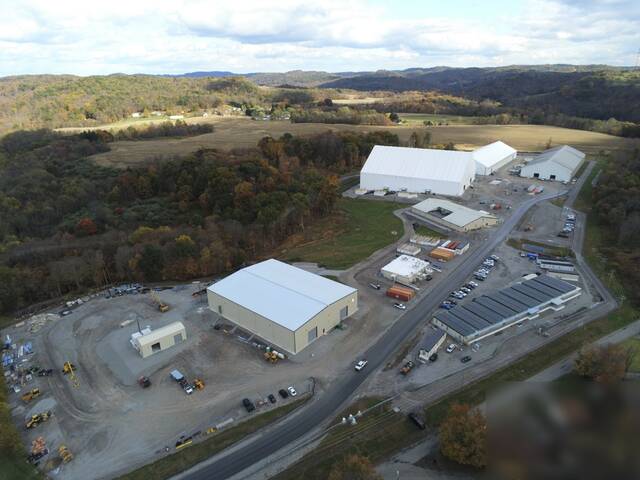An Oakmont food truck seeking to make the leap to a full restaurant and bar isn’t going about raising money for the jump in the traditional fashion.
Ken Shields, a full-time IT worker and grilling hobbyist who founded the Oakmont Barbeque Company food truck, could go to a bank or Wall Street investor to ask for the $36,000 loan he needs to convert a weed-ridden former car dealership’s lot on Allegheny River Boulevard in Verona into Off the Rails Barbeque and Draft House.
Instead, Shields sought to woo individual investors with as little as $100 who may live and work near the restaurant he wants to build.
Shields and several other small, Pittsburgh-area businesses — many of them centered around food — pitched their plans Wednesday during Invest Local PGH Pitch Fest.
“This was the perfect opportunity,” Shields said, noting that he and his one full-time employee “needed just a little to get over the hump.”
Western Pennsylvania businesses that are aching to grow and have the business plan to do it are finding an alternative to chasing after Wall Street big shots or succumbing to high-interest bank loans.
Packing together dozens to hundreds of individuals contributing toward a single loan can help a company raise tens of thousands to more than $100,000 — through a lending option called crowd-sourced small business loans.
The hyper-local investment tool has been gaining traction since Honeycomb Credit began offering the service in this region two years ago, said James Lomuscio, Honeycomb Credit’s head of business development.
“We do two things: We help small businesses get their next loan from regular people in the community, rather than a bank or big Wall Street investor,” Lomuscio said. “The other side of it is, we help regular people invest in the very businesses that they know and love and want to support on their own main streets.”
More than 30 loans have been completed via an investor pool of more than 600, ranging from $10,000 for new beehives at Pittsburgh Honey’s family-run apiary in Squirrel Hill, to $107,000 toward refinancing the debt of Iron Born pizza shop in Millvale, which has since opened a second location in the Strip District.
Several more companies in the midst of active campaigns posted to Honeycomb’s website. The Pittsburgh Barbecue Company is among them. Off the Rails Barbeque and Draft House will feature a large, outdoor patio for 40 to 60 patrons to feast on 14-hour smoked brisket and Southern-style macaroni and cheese.
Tootie’s Famous Italian Beef — a 7-year-old South Side storefront known for its never-frozen roast beef sandwiches made in less than 15 seconds — is seeking a loan of up to $43,000 over five years to to move into a second location in Downtown Pittsburgh’s Market Square, where owner Karl Horn expects to serve more than 300 customers a day before expanding to more locations.
The Speckled Egg, a soon-to-open restaurant whose husband-and-wife owners, Nathan and Jacqueline Schoedel, has already inked a 10-year lease at Downtown Pittsburgh’s Union Trust Building but is asking for investments up to $50,000 for startup food and labor costs and utilities.
The three culinary companies at different stages of business were among nearly a dozen companies pitching Wednesday the networking event with potential investors at Innovation Works in Pittsburgh’s North Side. Each company delivered a two-minute, tech-startup-style pitch followed by a tasting showcase to sample their food and an hour of mingling and for speaking to each investor one on one. Other companies there included City Fresh Pasta, Creative Coffee & Supply, Flexable on-demand child care services.
“It’s one thing to read about the businesses online or watch them in a video, it’s another to get to taste what they’re serving and try their wares and what not, so it’s good exposure for each of them,” Lomuscio said.
For growing companies that need capital to expand, traditional lending often isn’t sufficient or desirable, Lomuscio said.
“Loans do make sense,” he said. “The trouble with them is that, for many small businesses, the loans that are available to them are high interest and short term.”








